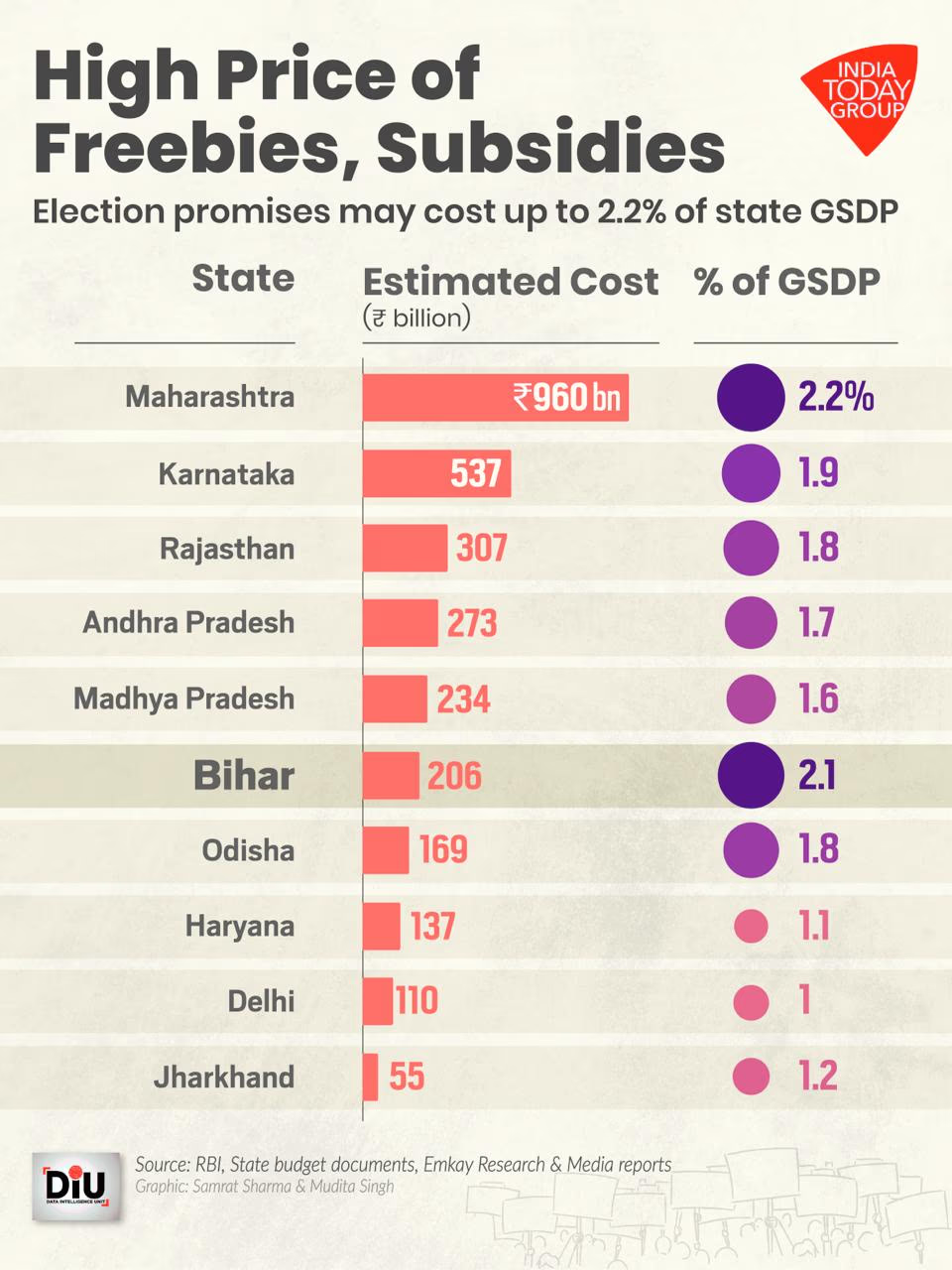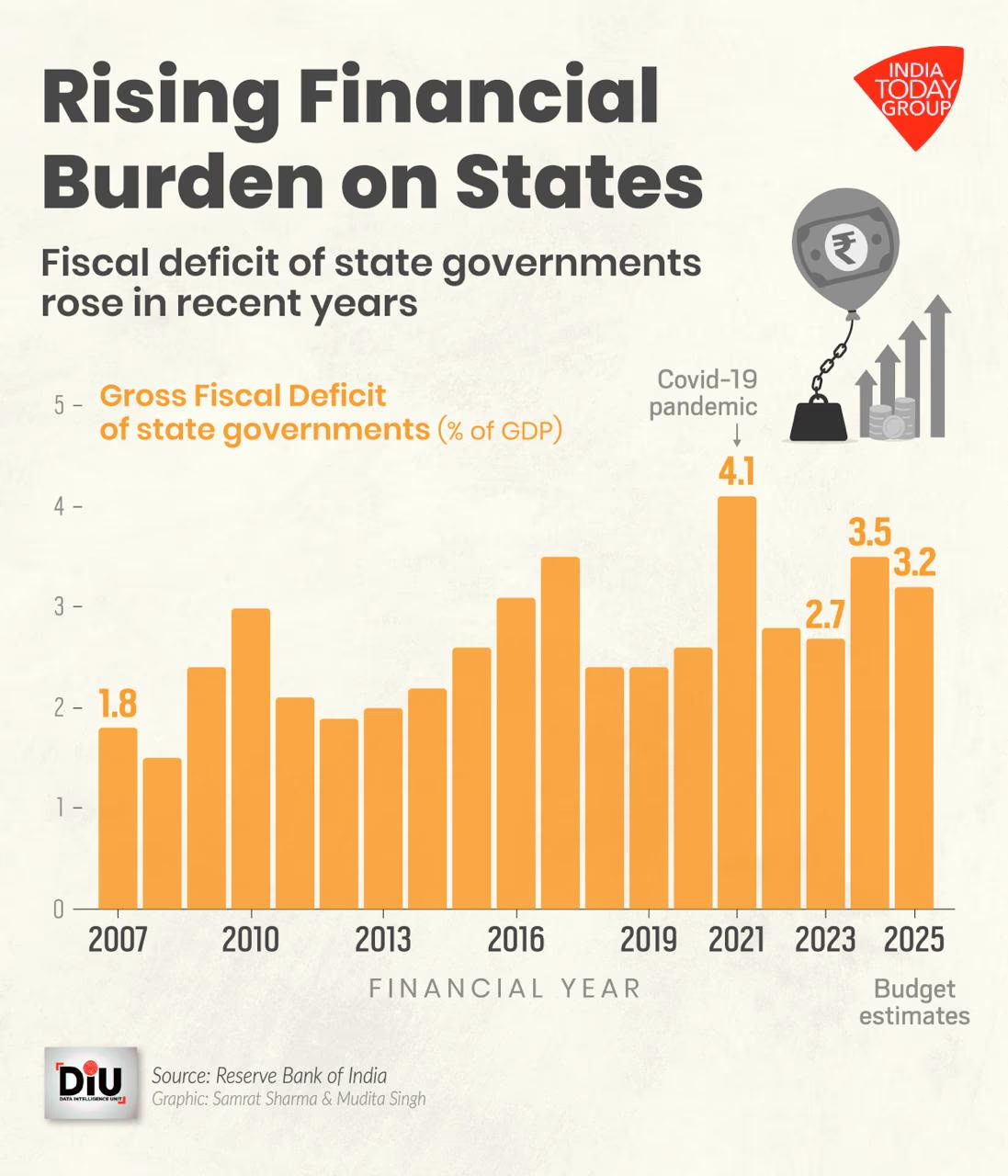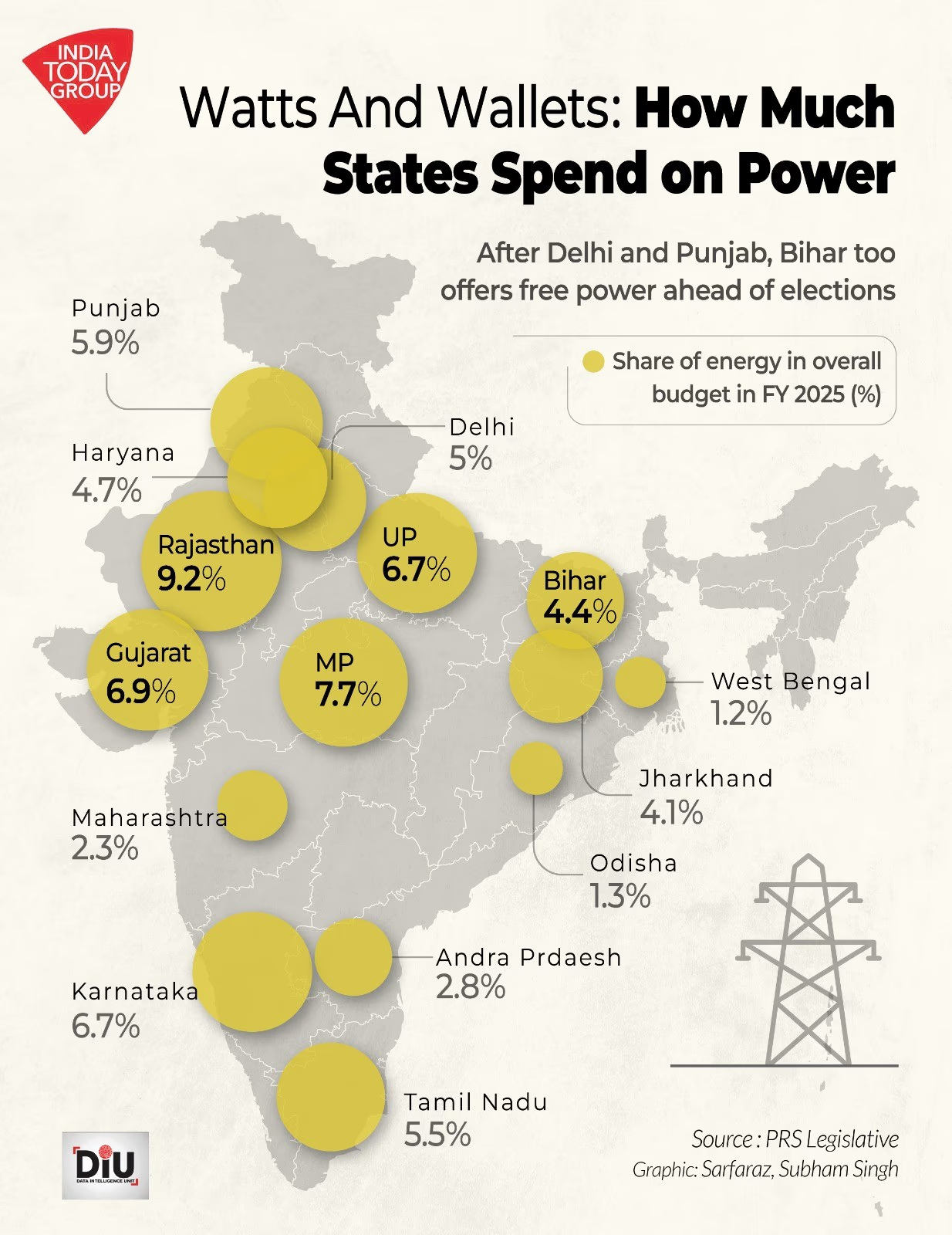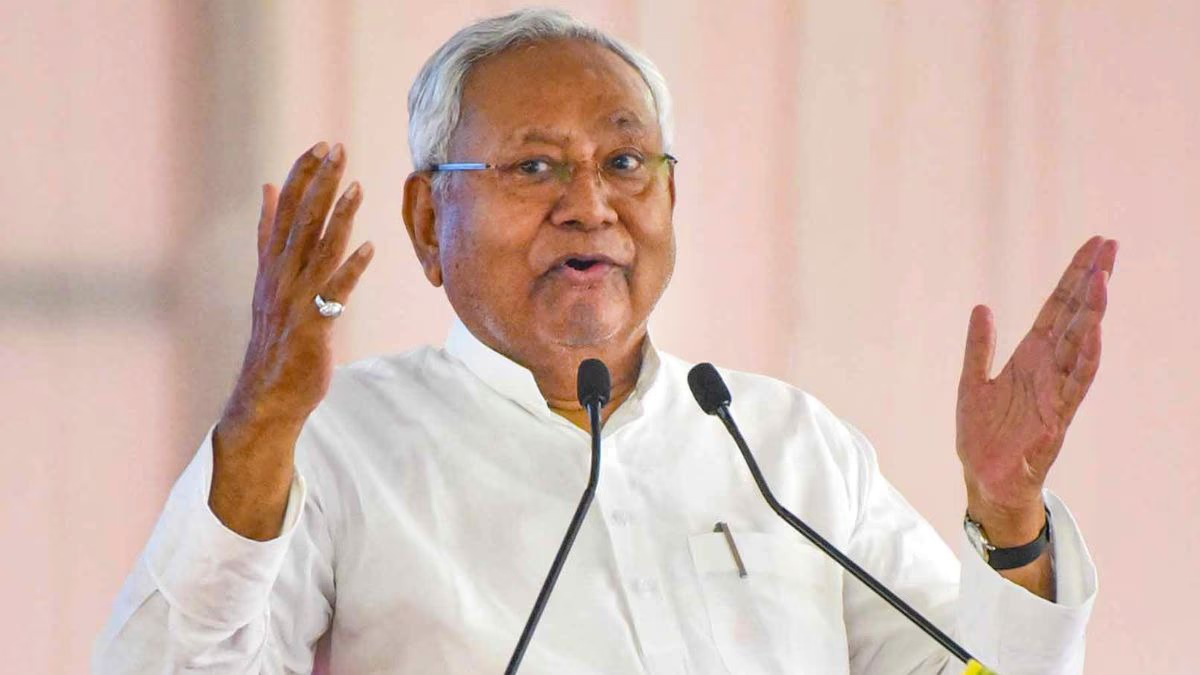The pre-election announcement of free electricity raises economic concerns for Bihar. Chief Minister Nitish Kumar declared that households would receive 125 units of free electricity monthly ahead of state elections. Existing subsidies devour half of the state’s development budget. For 2024-25, the 'Mukhyamantri Vidyut Upbhokta Sahayata Yojana' allocates a budget of ₹15,343 crores.
Why is Free Electricity Significant for Bihar?
For a resource-limited state like Bihar, welfare schemes can induce financial imbalances. Capital expenditure risks being diverted to repay debts.
On July 17, Nitish Kumar announced the provision of 125 units of free electricity per month. There is also a plan to introduce rooftop solar panels across homes over the next three years. This move, made just before elections, underscores the growing political trend of offering free amenities to gain votes.
Freebies aren't new, but their scope is expanding.
Delhi:
200 units of free electricity
Karnataka:
₹2,000 monthly for women
Rajasthan:
Distribution of smartphones
Tamil Nadu:
Laptops distributed
What is the Burden of Freebies on State Governments?
The burden on state governments is substantial. The estimated costs of free schemes and subsidies for 2023-24 are:
Maharashtra:
₹96,000 crores (2.2% of GSDP)
Karnataka:
₹53,700 crores (1.9%)
Bihar:
Around ₹20,000 crores (2.1%)

Source: aajtak
States Already in Crisis
States like Punjab, Jharkhand, and Rajasthan are already grappling with fiscal challenges. NITI Aayog ranks Punjab lowest in fiscal health due to excessive borrowing.

Source: aajtak
Can Bihar Afford This Expense?
It's an issue of policy and capability. Bihar’s tax collection is weak, and its borrowing capacity is limited. With rising expenses and dwindling revenues, can another guarantee be shouldered?
Only 2-3% of the country’s population, primarily urban middle class, pays income tax, and this segment is increasingly frustrated with the subsidy burden.

Source: aajtak
What Did Nitish Kumar Say?
Nitish asserted, 'We will ensure 125 units of free electricity.' Meanwhile, the Reserve Bank of India warned in its report
that such expenditures could limit resources for essential social and infrastructure programs.




